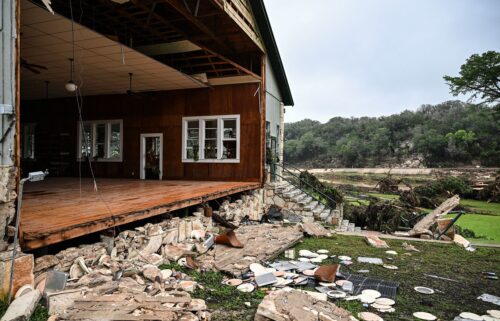Bear euthanized after attacking camper in Lake Tahoe trailer, other break-in attempts
By Lindsay Weber
Click here for updates on this story
SOUTH LAKE TAHOE, California (KCRA) — A bear was euthanized after it attacked a woman in her trailer at a Lake Tahoe campground, following a string of other attempted break-ins, according to the California Department of Fish and Wildlife. The bear’s two 5-month-old cubs were taken to a Northern California rescue.
The wildlife agency on Tuesday said the bear had a history of causing issues in human-occupied areas and was unresponsive to multiple attempts to haze it out of the area.
In fact, the department noted it had been trying to trap the bear since June 17.
Since the spring, CDFW said the bear had “generated multiple 911 emergency calls and unrelenting conflict activity.”
Officials said DNA evidence linked the bear to attempted home and vehicle break-ins in South Lake Tahoe, particularly along Cascade Road, and some confrontations at the Eagle Point Campground in Emerald Bay State Park.
On June 10, the sow entered a vehicle at the campground that had a child inside, fastened into a child seat.
But the issues with the bear culminated in the attack on Sunday. Around 4:30 a.m., CDFW says the bear entered an occupied trailer at the Eagle Point Campground. The camper tried to scare the bear off by banging pots and pans, screaming at the bear and generally making loud noise.
CDFW says the bear was undeterred and swiped at the camper. She was escorted to a hospital with cuts and bruises on her arms and a hand.
Later that same morning, CDFW said the bear ripped the door open on another camper-van with teenagers sleeping inside and harassed other campers within the campground.
On Monday, a State Parks ranger came across the bear in South Lake Tahoe and euthanized it, CDFW said. DNA testing confirmed it was the same bear responsible for the attack.
“Euthanasia is a measure of last resort,” said Morgan Kilgour, regional manager for CDFW’s North Central Region, in a news release.
But there had been at least seven different occasions when CDFW, State Parks or the U.S. Forest Service tried to encourage the bear to leave and stay away from the human-occupied areas.
As for the bear’s cubs, the department is hopeful that they can be rehabilitated and discouraged from following the same behaviors as their mother.
“Bear cubs learn everything from their mothers – good and bad behavior alike,” Kilgour said. “A mother bear that constantly searches human-occupied areas for unnatural food sources, breaks into homes and vehicles, teaches this behavior to her cubs and perpetuates another generation of human-bear conflict. Removing these cubs from this conflict activity early in their lives gives them a chance that they can return to the wild and live as wild bears should.”
Please note: This content carries a strict local market embargo. If you share the same market as the contributor of this article, you may not use it on any platform.

